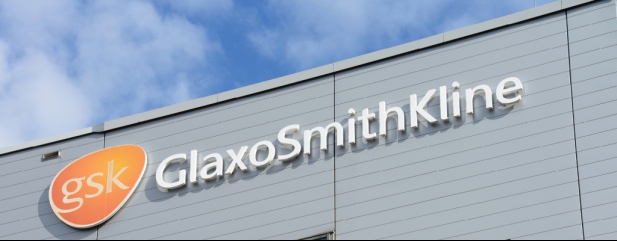Archived article
Please note that tax, investment, pension and ISA rules can change and the information and any views contained in this article may now be inaccurate.
Pressure builds on GlaxoSmithKline as activist enters the fray

Shares in GlaxoSmithKline (GSK) are on an upward path after the Financial Times reported that activist US investor Elliott Investment Management had taken a ‘significant’ multi-billion-pound stake.
The $42 billion fund, known for active campaigns at miner BHP (BHP) and Premier Inn owner Whitbread (WTB), is expected to heap pressure on Glaxo chief executive Emma Walmsley.
Although we don’t know the precise reasons for Elliott’s actions, we can construct a possible narrative. The shares have lagged the sector and the company is in the middle of one of the biggest transformations in its history which will see the consumer healthcare division demerged in 2022.
Given the huge amounts of investment in research and development needed to build a drug pipeline it could be argued that the full sale of the consumer health division would serve long term shareholders better than a demerger.
The deal with Pfizer in 2019 to combine respective consumer health businesses has created one of the best quality consumer franchises boasting such iconic brands as Panadol, Sensodyne and Advil. Such a high-quality asset might command a high multiple should it be sold in its entirety.
BUILDING THE PIPELINE
At the same time Glaxo is in the process of beefing up its biopharma division. It takes a long time to build a pipeline of new drugs, but Glaxo has arguably made good progress and expects to launch more than 20 new products over the next five years.
The biggest drivers of value over the coming decade are expected to be the cancer and vaccine franchises according to Liberum.
One of Walmsley’s first actions in 2018 was the $5.1 billion purchase of US biotech company Tesaro, which spearheaded the relaunch of the cancer franchise.
Although small today, Liberum expects the cancer franchise to generate sales of $2.7 billion by 2030, driven by Zejula (ovarian cancer) and Blenrep (multiple myeloma).
In vaccines, Shingrix, which is used to treat the chicken-pox related disease shingles, has shown good efficacy and is expected to remain an important driver of growth until the end of the decade.
Liberum estimates the cancer and vaccines franchises could add around $7bn to revenues over the decade which will more than compensate for stagnant sales elsewhere.
Liberum analyst Alistair Campbell commented: ‘Our detailed work shows that contrary to market scepticism GSK’s biopharma business will deliver above sector sales growth and high single digit earnings per share growth to 2025. In fact, even in a bear case GSK will still deliver sales growth to 2030, in our view.’
Important information:
These articles are provided by Shares magazine which is published by AJ Bell Media, a part of AJ Bell. Shares is not written by AJ Bell.
Shares is provided for your general information and use and is not a personal recommendation to invest. It is not intended to be relied upon by you in making or not making any investment decisions. The investments referred to in these articles will not be suitable for all investors. If in doubt please seek appropriate independent financial advice.
Investors acting on the information in these articles do so at their own risk and AJ Bell Media and its staff do not accept liability for losses suffered by investors as a result of their investment decisions.
Issue contents
Exchange-Traded Funds
Feature
Great Ideas
- It’s a great time to feast on McDonald’s shares
- Tracsis springs to life on summer shows optimism
- This engineering stock is racing higher after yet more earnings upgrades
- Virgin Wines’ shares are cheap for an online retailer and it is profitable
- The oil and gas stock shooting higher as new discovery confirmed
- Elementis is still a buy despite takeover disappointment
- The little known company that’s gone up by 88% since October
 magazine
magazine








